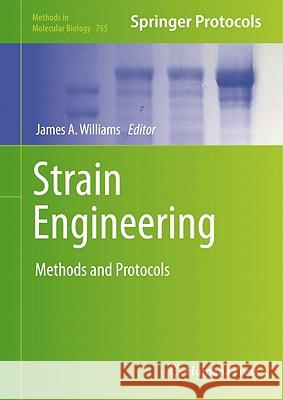Strain Engineering: Methods and Protocols » książka
Strain Engineering: Methods and Protocols
ISBN-13: 9781617791963 / Angielski / Twarda / 2011 / 496 str.
Classical methods for microbial strain engineering, used to improve the production of bioproducts, have serious drawbacks and have been found to be unsuitable for complex strain development applications. In Strain Engineering: Methods and Protocols, powerful new genetic engineering-based strain engineering methods are presented for rational modification of a variety of model organisms. These methods are particularly powerful when utilized to manipulate microbes for which sequenced and annotated genomes are available. Collectively, these methods systematically introduce genome alterations in a precise manner, allowing the creation of novel strains carrying only desired genome alterations. In the first section, E. coli-based bacterial strain engineering strategies are reviewed, while the second section presents analogous microbial engineering strategies for eukaryotic cells using the yeast Saccharomyces cerevisiae as a model. The third section covers examples of the proliferative adaptations of these base technologies to strain engineer industrially important prokaryotic or eukaryotic microbial systems. Written in the highly successful Methods in Molecular Biology series format, chapters contain introductions to their respective topics, lists of the necessary materials and reagents, step-by-step, readily reproducible laboratory protocols, and notes on troubleshooting and avoiding known pitfalls.Authoritative and accessible, Strain Engineering: Methods and Protocols serves as an ideal guide to scientists in academia, pharmaceutical science, and biotechnology who perform microbial strain engineering.











